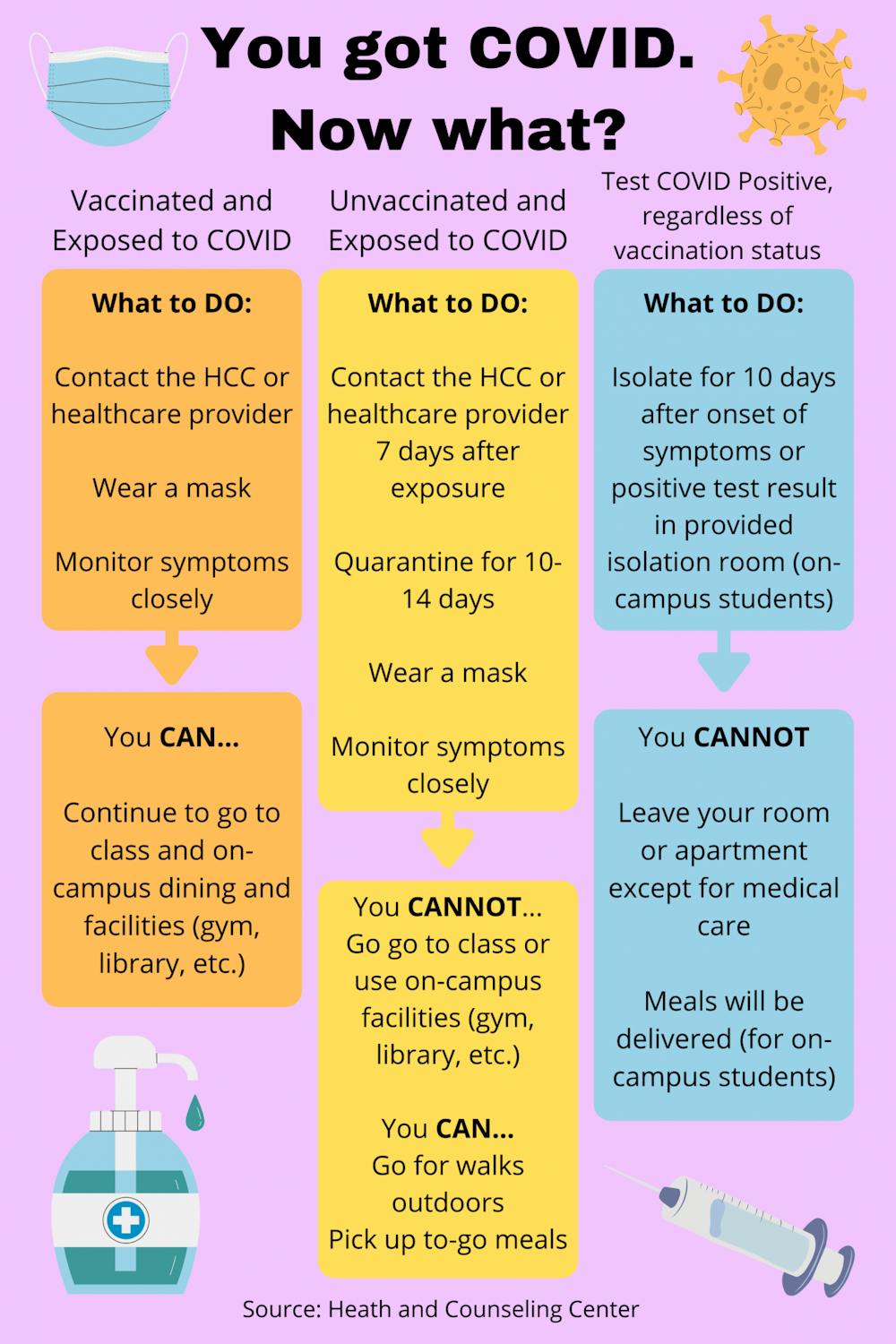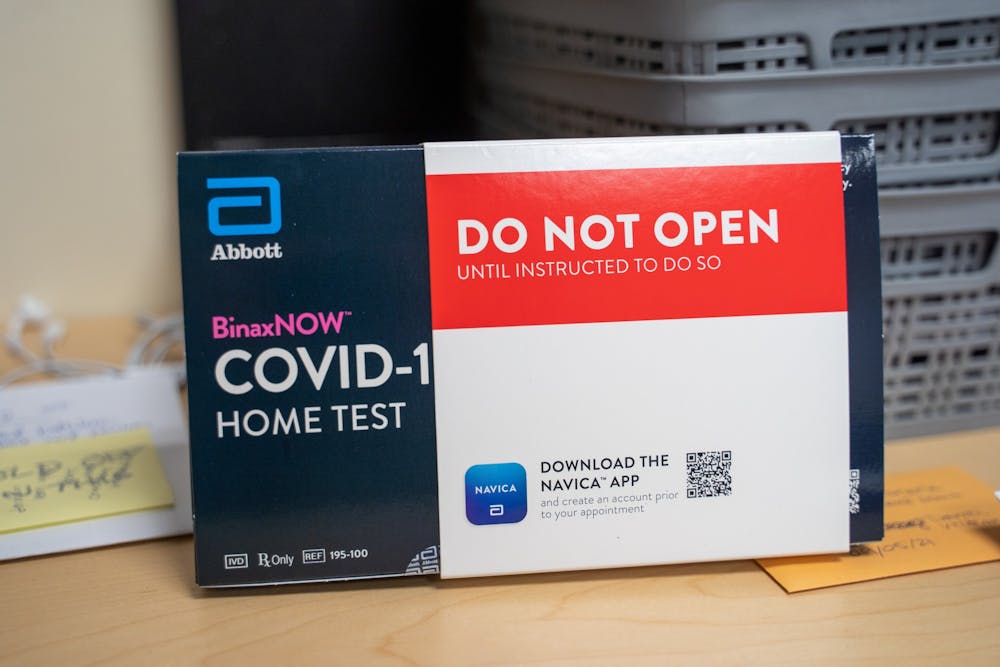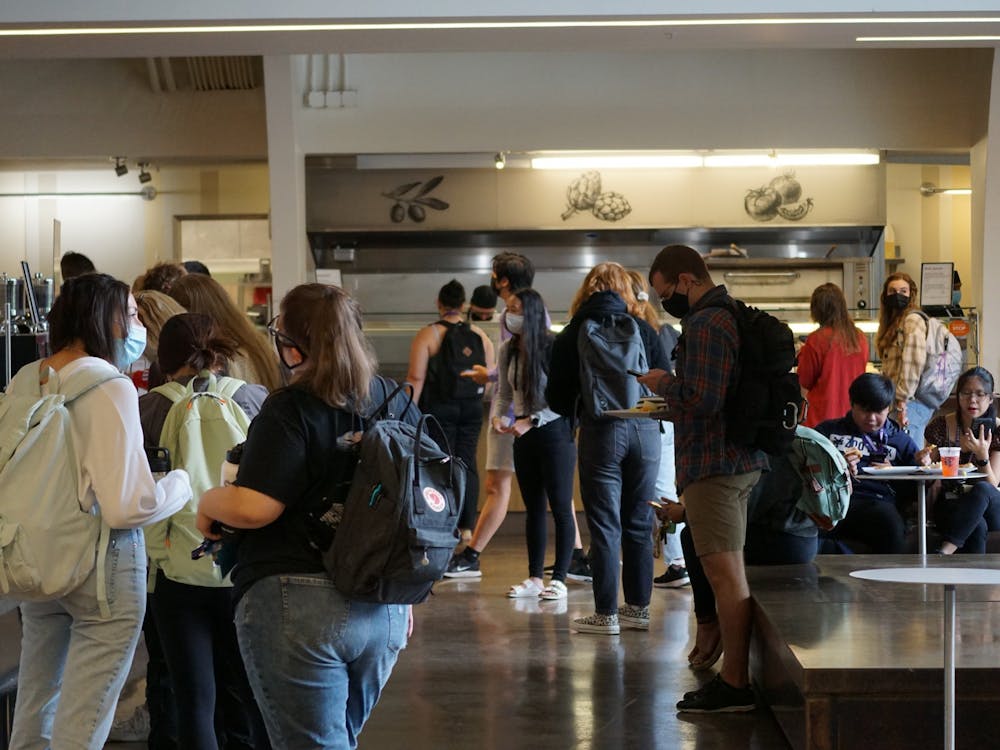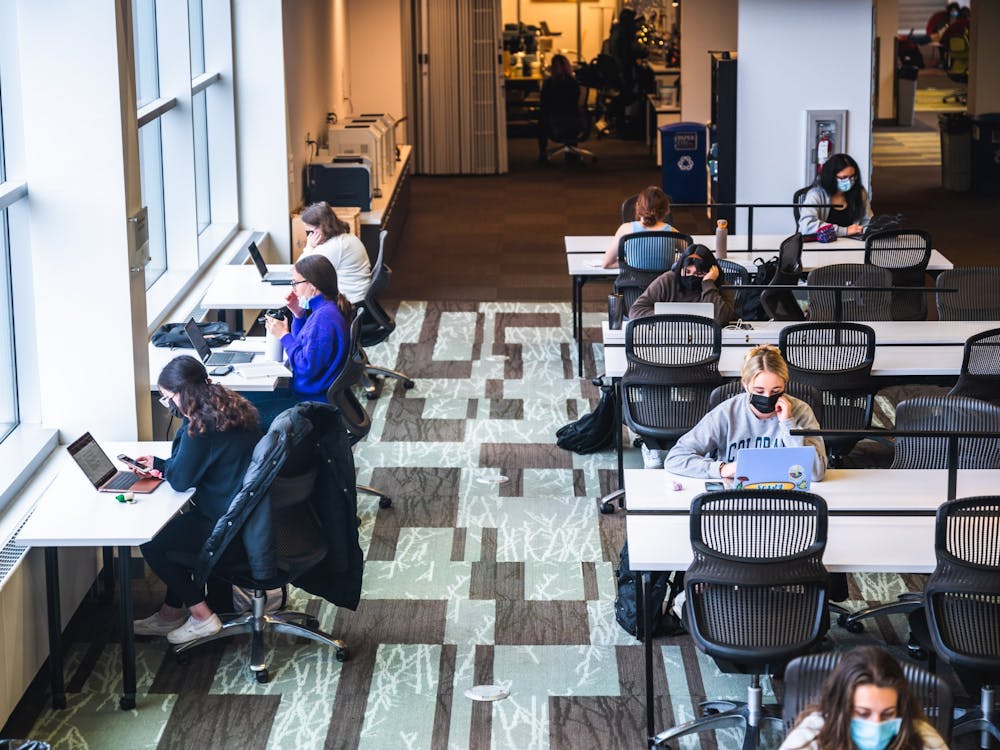Four weeks into the fall semester and students are adjusting to life back on The Bluff. But even after a month on campus, students, faculty and staff still have questions about what life looks like amidst the ongoing pandemic.
The Beacon has collected a list of frequently asked questions (FAQs) for the UP Community to navigate the academic year.
How can I get tested?
Testing is available to students and employees through the Health and Counseling Center (HCC) and Campus Safety.
The HCC offers antigen and PCR testing during its business hours Monday through Friday from 8:30 a.m. to 4:30 p.m. and 15-minute rapid self-administered antigen tests can be picked up at Campus Safety at any time.
“If a student has symptoms or an exposure, we're asking that they come to the HCC to get an antigen test,” Joe Buck, a physician assistant at the HCC, said. “And then depending on their symptoms, or the severity of their exposure, we're also sending a PCR test.”
The HCC also provides a list of off-campus community testing options on their website.

What happens if I live on-campus and test positive for COVID-19?
On-campus students who test positive for COVID-19 will be contacted via phone or email by a member of the COVID Case Management Team. They will then be guided through moving to an isolation room, according to Andrew Weignarten, director of Residence Life.
“We spend some time on the phone right then and there,” Weingarten said. “We'll walk you through it over the phone and try our best to help you remember the things you might not be thinking about at the moment because you're stressed.”
On campus, there are 36 isolation spaces available for students, all of which are located in Fields and Schoenfeldt Halls. All rooms contain private bathrooms so isolated students don’t have to leave their rooms.
If more isolation rooms are needed, the University has reserved additional spaces that can be turned into isolation spaces in 30 minutes, such as the lower level of Villa Maria Hall.
Last semester, UP had 50 isolation spaces available, but only used up to nine concurrently, according to Weingarten.
“We've been developing our supports and resources for over 18 months now,” Wiengarten said. “We know a thing or two about this.”
Students in isolation are delivered daily meals from community assistants as well as from members of the COVID Case Management Team.
What happens if I live off-campus and test positive for COVID-19?
Off-campus students who test positive for COVID-19 must isolate in their homes for ten days after they first experience symptoms. The University is able to provide on-campus isolation spaces for off-campus students if they are unable to isolate in their homes.
“We're making sure that they have their own space that they can quarantine in, and a private bathroom as well, not a shared bathroom.” Buck said. “If they don't have that, Residence Life has some spaces that they could move off-campus students on-campus to isolate to try to prevent the spread.”

How do I report a positive case?
If a student is tested through the HCC, positive cases will be recorded by staff members.
Students who test positive through a self-administered test from Campus Safety or a test outside of the HCC must submit a student COVID-19 reporting form.
How does contact tracing work?
Student contact tracing is done by the University’s COVID Case Management Team. Upon testing positive for COVID-19, the COVID Case Management Team will contact the people who have been in close contact with that individual via phone or email.
Unvaccinated students who are exposed will need to quarantine for 10 to 14 days after the exposure and get tested by the HCC.
Vaccinated students who are exposed do not have to quarantine, but should get tested and monitor their symptoms.
“If you're vaccinated you can actually keep doing what you're doing, you just have to monitor your symptoms, wear your mask, and you should get tested on days three to five after [being exposed],” Weingarten said.
UP’s Human Resources department provides contact tracing for University of Portland faculty and staff.
Is UP bringing back Surveillance testing?
Currently, the University is not planning to bring back surveillance testing.
“The number of COVID-19 cases that were found through the extensive testing conducted by Carbon Health in the spring was very small.” Michael Lewellen, Vice President for Marketing & Communications, said in an email to The Beacon. “The vast majority of cases that we had were discovered through students reporting symptoms and through contact tracing.”
How is the privacy of students who have tested positive for COVID-19 balanced with informing the community?
If a student tests positive for COVID-19, their name is not shared publicly, and is only known to those working on the COVID Case Management Team.
Weingarten encourages students to be honest if they believe they have COVID-19.
“I don't want there to be a negative stigma around this,” Weingarten said. “The more we can all get comfortable with it and reduce negative stigmas around it, the more likely it is that you're going to come to us for help.”
How has the Delta variant affected UP?
The Delta variant of COVID-19 poses an added threat to the UP community. It is more contagious and spreads faster than the other forms of COVID-19.
“The Delta variant is out there, and we're seeing it, but we're not seeing any serious complications with it, at least in our population,” Buck said.
Kate Cuadrado is a reporter for The Beacon. She can be reached at cuadrado24@up.edu.
William Seekamp is the News and Managing Editor of The Beacon. He can be reached at Seekamp22@up.edu
Austin De Dios contributed to this story. He can be reached at dedios22@up.edu.








